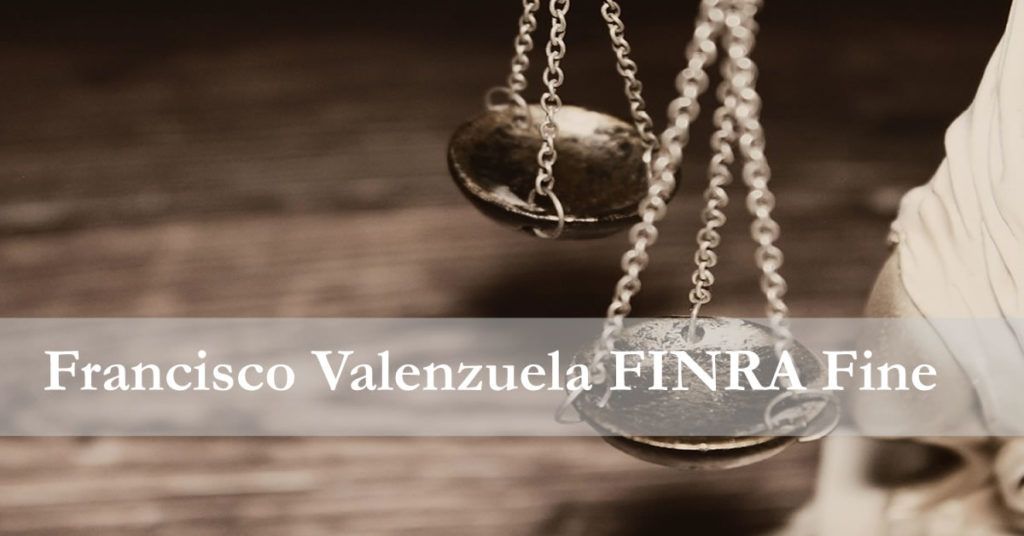Compensatory damages have been awarded to Carlos Ramon Tapia Sanchez, a client of Francisco Valenzuela, a former broker from Morgan Stanley. who accused the firm of negligence as well as failure to supervise. The Phoenix, Arizona based three-member panel of public arbitrators held the firm responsible for these acts, for which it has to pay $160,000 while exonerating them of the responsibility for some others.
As per the arbitration award posted on the website of the Financial Industry Regulatory Authority (FINRA), it is related to the trading of unspecified securities in the account of the customer. The broker in question, Francisco Valenzuela was also ordered to pay a matching amount of $160,000 to Carlos Ramon Tapia Sanchez, the impacted client. He was held liable for fraud, manipulation, and misrepresentation. As per his BrokerCheck profile, Valenzuela was associated with Morgan Stanley from 2015 through 2018, after which there is no record of association with any broker-dealer.
Additionally, a sum of $10,000 towards attorneys’ fees is to be made good to the client by Morgan Stanley and Valenzuela, jointly and severally. This was determined based on FINRA Dispute Resolution Arbitrator’s Guide.
Are you a victim of investment fraud by Francisco Valenzuela? Contact Haselkorn & Thibaut, P.A. at 1-888-614-9356 for a free private consultation.
No award was made by the panel, for conversion and elder abuse, which were also asserted by Sanchez in his statement of claim. While the original claim was for $500,000, it was later watered down to $357,622 which covered compensatory damages and attorney fees.
Morgan Stanley’s motion of dismissal of the elder abuse claim was denied by the panel.
Merrill Lynch, who whom Valenzuela had been associated as a broker from 2010 through 2015, was also named as a respondent. However, the panel did not determine any compensation to be paid by them. They had requested for the claim to be denied in its entirety and that they should be compensated for the attorney fee and arbitration costs incurred by them.
While Morgan Stanley and Merrill Lynch did not offer any comment, Burt Newsome, the claimant’s attorney, said that “The claimant reached an amicable confidential agreement with Merrill Lynch … prior to the arbitration proceeding.”
How to File a FINRA Complaint
Filing a FINRA complaint is a common procedure, which begins by issuing a disciplinary complaint. A disciplinary complaint is essentially an allegation and does not contain any findings. This is similar to the filing of a petition in regular civil proceedings. Most FINRA complaints proceed to arbitration or mediation, but these methods are less formal. As long as the dispute is within three years of the original complaint, the parties can continue the process without further litigation.
If you believe that you have a case based on the representation of a particular investment adviser, you should file your complaint with FINRA as soon as possible. The deadline for filing a complaint is 30 days after you first receive it from a member firm. Until then, you can access the FINRA complaint disclosures and rely on these documents as your guide. Initial filing fees are determined by FINRA Customer Code Rule 12900.
FINRA is the self-regulatory body of the financial services industry. Broker-dealers are regulated by FINRA and must keep records as required by federal securities law. When an investor files a complaint with FINRA, they must follow certain rules and file it online. FINRA charges a filing fee of $45 and prefers online submission. The Federal Trade Commission also accepts complaints related to unfair business practices, fraud, scams, credit reporting, collections abuse, and other issues. Arbitration is another alternative for broker-dealer disputes. The arbitration process allows you to seek damages against the broker-dealer for breach of the rules.
Once you’ve filed a FINRA complaint, you can choose to pursue arbitration or mediation. Depending on your individual situation, FINRA may decide to pursue a disciplinary hearing if necessary. The FINRA will require you to provide documents and records for the investigation in many cases. If the investigation reveals a violation of the FINRA Code of Ethics, the FINRA can award you a compensation amount that is less than half of the initial investment.
A FINRA arbitration process is separate from the investor complaint program. If your broker has violated the rules of the FINRA code of conduct, a complaint filed through the investor complaint program may result in regulatory action against the broker and brokerage firm. However, this won’t lead to a refund of your investment losses. If you’re not satisfied with the outcome of your FINRA complaint, you can take your case to arbitration through FINRA.
In addition to requiring firms to report written customer complaints, FINRA also requires them to report e-mails. The latter requires you to save the e-mail as a file and attach it to the complaint form. These types of complaints are stored in FINRA’s Consumer Complaint Database. If you are unsure about whether to file a FINRA complaint, visit the website below. Just remember to save all of your e-mails as files, as these are considered documents.


